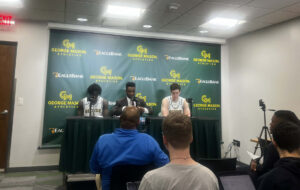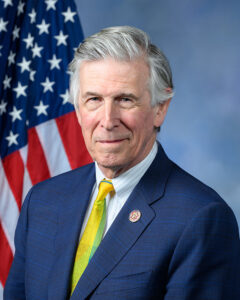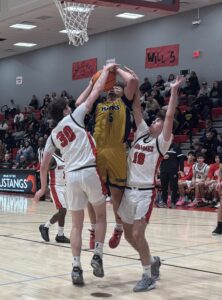Few Remedies For Crazy Quilt Of Restrictions
Once again, the Falls Church City Council began sinking in a quicksand of competing residential homeowner interests Monday night, and had to call off a vote on its latest stab at a comprehensive on-street parking restriction policy.
It has been four years since the City first undertook to devise a comprehensive plan for limiting on-street parking access, especially in residential neighborhoods near the East and West Falls Church Metro stations.
In the meantime, in a patch-work, case-by-case fashion, the City has responded to resident petitions to place a variety of restrictions on 44 streets in its 2.2 square mile area. Right now, any citizen’s request for a restriction on the public street in the front of his or her home requires that City Hall undertake an exhaustive and expensive evaluation.
The main purpose of the proposed legislation brought to the Council this Monday was to limit the citizen petitions by placing an initial burden on residents. Namely, it would require that 75% of the neighbors of a block or area agree to the request for parking restrictions, in advance of seeking City action.
City Manager Wyatt Shields also hoped the new plan would enable the City to eventually unravel the current hodge-podge of different and conflicting restrictions with one rooted in the notion that any vehicle in the City bearing a City of Falls Church personal property tax sticker could park anywhere for any length of time.
But there was some noisy citizen protest Monday expressing concerns that the current array of restrictions remain “grandfathered in” even as the new policy takes effect.
The surreal nature of the conversation was underscored by one resident who documented four different parking restriction policies within 100 yards of his home on 11th Street near N. Underwood. Rick Langholz told the Council the situation is “galling.”
On one street there is a two-hour restriction, another a four-hour restriction, another is permit-only and still another, no restriction, he said.
So, it became increasingly vague whether the new plan would lock these various restrictions in place, or not. Another homeowner present, Jamie Craig, argued strongly that they should.
But as it is right now, Shields tried to explain, there is nothing “written in stone” about any of these restrictions, leaving the City administration flexible to change them if it felt it should. If the new plan, voted on by the Council, included language to “grandfather in” the current arrangements, then they would be locked in, legally.
Shields does not want that, even as he indicated he did not foresee any changes in the current arrangement unless the impacted neighborhoods, themselves, want them.
But new parking signs have already begun to go up in some western portions of the City indicating that City of F.C.-stickered cars are exempt from the parking restrictions posted there.
While that is what Shields hopes the Council will adopt as its new citywide policy, it does not represent a “cart before the horse” for the signs to begin appearing prior to a Council vote. That’s because, as it stands now according to Wendy Sanford of the City’s Planning Department, whatever is posted is what is the law.
Former Falls Church City Manager David Lasso, who also spoke at the meeting, noted that the problems began arising as the City began accepting neighborhood requests for restricted parking permits. What we had worked for 18 years. It’s only been in the last three that it hasn’t, he said, adding that policies both in place and contemplated now “send very contradictory messages.”
Councilman David Chavern said the current plan “furthers an irrational system,” and “elaborates an already crazy system.” He said the current arrangement is like “squeezing a balloon.”
Squeeze one end of a balloon, and it just makes the other end bigger, he suggested. In other words, trying to fix a problem in one area only makes it worse somewhere else.
He noted that on-street parking issues may have at their root the City’s shift from a suburban to an urban environment. “In the suburbs, people feel they have proprietary control of the streets on which they live,” he said. “In an urban setting, all sorts of strange people park in front of homes.”
Chaven was also the only one to mention the impact of restrictive on-street parking on employees of city businesses.













